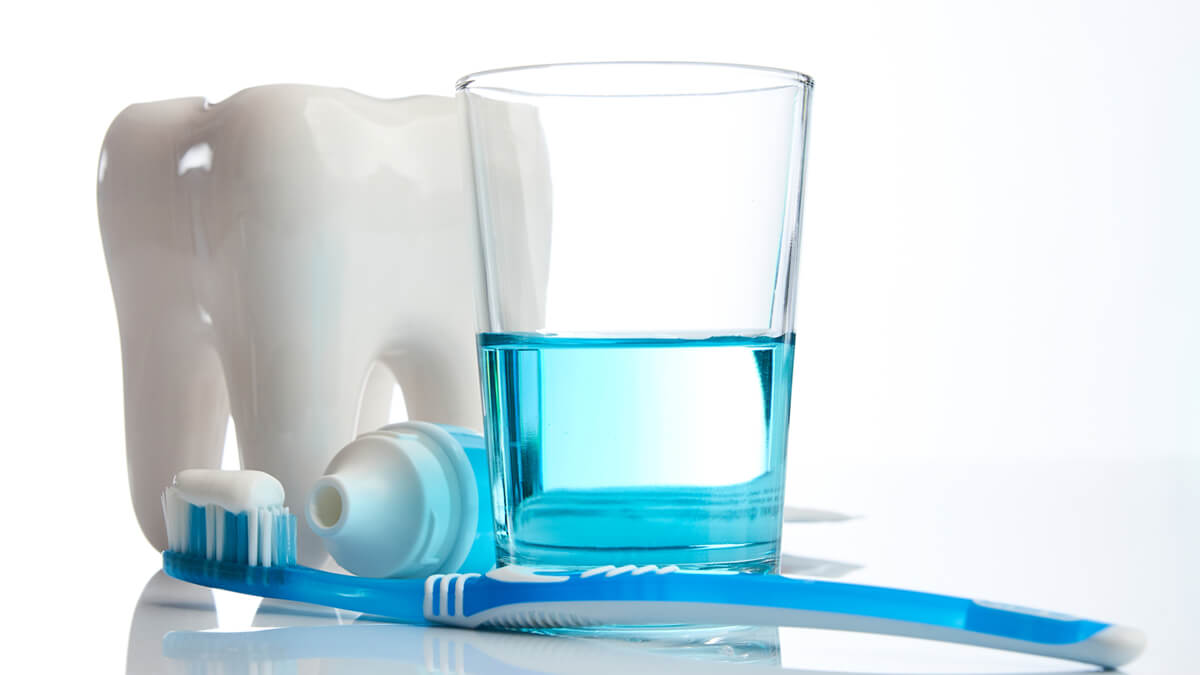If all you ever watched were toothpaste ads, you might get the impression that our teeth are primarily there to make us look good. But, of course, our teeth are far more than a pearly white ornamentation. They’re essential to eating and speaking and, as health educators will tell you, our oral health is an important part of our overall health.
Here are some oral health facts you might not know.
There Are 500+ Bacterial Species in Plaque
You’ve undoubtedly heard of plaque, but do you know what it is? It’s called a biofilm, basically a sticky paste of bacteria that are feasting on the sugars left over on your teeth after you eat. There are over 500 species of bacteria found in plaque.1 That, in-and-of-itself, is disturbing enough, but the real problem with plaque isn’t that it’s gross. It’s that the bacteria that form plaque produce acids that eat away at your teeth, eventually causing cavities and tooth decay.
A Large Number of Americans Have Periodontal Disease
Plaque doesn’t only harm your teeth. It harms your gums, causing the inflammation and tenderness known as gingivitis. It eventually can cause periodontitis, which is a condition when your gums pull away from your teeth and the support structure for your teeth is harmed. Untreated periodontal disease causes tooth loss, and many Americans are at risk. According to the Centers for Disease Control and Prevention, 47% of adults aged 30 years and older have some form of periodontal disease, while over 70% of adults 65 years and older have periodontal disease.2
Oral Health Can Affect the Rest of Your Health
Studies have shown that untreated tooth decay and periodontal disease may contribute to other health problems. Bacteria from your mouth may cause endocarditis (a type of heart infection). Periodontitis has been linked to premature births, and gum inflammation could be a contributing factor to cardiovascular disease.3
Oral Health Is About More Than Your Teeth
Every year, nearly 50,000 Americans will be diagnosed with oral cancer, while 9,750 will die from the disease.4 Oral cancer is particularly problematic because it tends to go unnoticed until it metastasizes. Tobacco use, alcohol consumption, and HPV infections can all contribute to your risk of developing oral cancer.
Too Few People Go to the Dentist Regularly
The best way to preserve your oral health and detect problems early is to visit a dentist regularly. Unfortunately, many people don’t go for yearly dental visits, though in most age groups the numbers are steadily getting better. Still, in 2018, while 85.9% of individuals ages of 2-17 had a dental visit during the year, only 65.9% of individuals age 18-64 went to the dentist.5
How Can You Help Promote Oral Health?
If you’re interested in helping people learn why it’s important to take care of their teeth and mouths, you may enjoy a career in health and education promotion. What is health and education promotion? It’s a field focused on designing health communications; planning, implementing, and evaluating prevention programs; and/or educating communities on public health issues. And the best way to get into the field is by earning an MS in Health Education and Promotion.
While you may think earning a master’s degree is too much of a hassle, it doesn’t have to be. Thanks to online education, you can earn a health education and promotion degree without having to live near a campus or even leave home. That’s because, earning a master’s in health education and promotion online means having the freedom to complete coursework from wherever you can access the internet. On top of that, an online master’s in health education and promotion lets you choose the time of day you attend class, creating a level of flexibility that makes it possible to combine online learning with full-time work.
We need health educators who can help people better understand the importance of oral health. With a master’s degree from an online university, you can help fill that role.
Walden University is an accredited institution offering an MS in Health Education and Promotion degree program online. Expand your career options and earn your degree in a convenient, flexible format that fits your busy life.
1 Source: www.ada.org/en/press-room/news-releases/2016-archive/august/statement-from-the-american-dental-association-about-interdental-cleaners
2 Source: www.cdc.gov/oralhealth/periodontal_disease/index.htm
3 Source: www.mayoclinic.org/healthy-lifestyle/adult-health/in-depth/dental/art-20047475
4 Source: https://oralcancerfoundation.org/facts
5 Source: https://www.cdc.gov/nchs/data/hus/2019/038-508.pdf
Walden University is accredited by The Higher Learning Commission, www.hlcommission.org.




